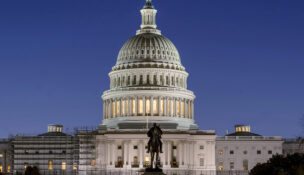Ducey vetoes broader distracted driving bill
Howard Fischer, Capitol Media Services//April 27, 2019//[read_meter]
Ducey vetoes broader distracted driving bill
Howard Fischer, Capitol Media Services//April 27, 2019//[read_meter]
Saying it could confuse the issue for motorists, Gov. Doug Ducey late Friday vetoed legislation to create a new offense of distracted driving. In a message to lawmakers, the governor...
No tags for this post.

















